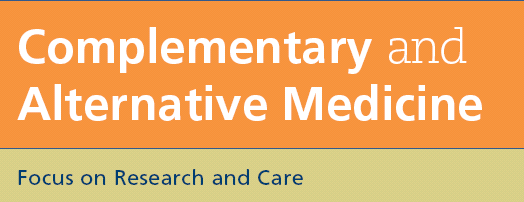NATIONAL CENTER FOR COMPLEMENTARY AND ALTERNATIVE MEDICINE


Using Dietary Supplements Wisely

© Matthew Lester
Many people take dietary supplements in an effort to be well and stay healthy. With so many dietary supplements available and so many claims made about their health benefits, how can a consumer decide what's safe and effective?
About Dietary Supplements
Dietary supplements were defined in a law passed by Congress in 1994 called the Dietary Supplement Health and Education Act (DSHEA). According to DSHEA, a dietary supplement is a product that:
- Is intended to supplement the diet
- Contains one or more dietary ingredients (including vitamins, minerals, herbs or other botanicals, amino acids, and certain other substances) or their constituents
- Is intended to be taken by mouth, in forms such as tablet, capsule, powder, softgel, gelcap, or liquid
- Is labeled as being a dietary supplement
Research has shown that some uses of dietary supplements are effective in preventing or treating diseases. For example, scientists have found that folic acid (a vitamin) prevents certain birth defects, and a regimen of vitamins and zinc can slow the progression of the age-related eye disease macular degeneration. Also, calcium and vitamin D supplements can be helpful in preventing and treating bone loss and osteoporosis (thinning of bone tissue).
Research has also produced some promising results suggesting that other dietary supplements may be helpful for other health conditions (e.g., omega-3 fatty acids for coronary disease), but in most cases, additional research is needed before firm conclusions can be drawn.
Federal Regulation of Dietary Supplements
The Federal Government regulates dietary supplements through the U.S. Food and Drug Administration (FDA). The regulations for dietary supplements are not the same as those for prescription or over-the-counter drugs. In general, the regulations for dietary supplements are less strict.
- A manufacturer does not have to prove the safety and effectiveness of a dietary supplement before it is marketed. A manufacturer is permitted to say that a dietary supplement addresses a nutrient deficiency, supports health, or is linked to a particular body function (e.g., immunity), if there is research to support the claim. Such a claim must be followed by the words "This statement has not been evaluated by the Food and Drug Administration. This product is not intended to diagnose, treat, cure, or prevent any disease."
- Manufacturers are expected to follow certain "good manufacturing practices" (GMPs) to ensure that dietary supplements are processed consistently and meet quality standards. Requirements for GMPs went into effect in 2008 for large manufacturers and are being phased in for small manufacturers through 2010.
- Once a dietary supplement is on the market, the FDA monitors safety. If it finds a product to be unsafe, it can take action against the manufacturer and/or distributor, and may issue a warning or require that the product be removed from the marketplace.
Also, once a dietary supplement is on the market, the FDA monitors product information, such as label claims and package inserts. The Federal Trade Commission (FTC) is responsible for regulating product advertising; it requires that all information be truthful and not misleading.
Sources of Science-Based Information
It's important to look for reliable sources of information on dietary supplements so you can evaluate the claims that are made about them. The most reliable information on dietary supplements is based on the results of rigorous scientific testing.
To get reliable information on a particular dietary supplement:
- Ask your health care providers. Even if they do not know about a specific dietary supplement, they may be able to access the latest medical guidance about its uses and risks.
- Look for scientific research findings on the dietary supplement. NCCAM and the Office of Dietary Supplements, both a part of the National Institutes of Health (NIH), as well as other Federal agencies, have free publications, clearinghouses, and information on their Web sites.
Safety Considerations
If you are thinking about or are using a dietary supplement, here are some points to keep in mind.
Tell your health care providers about any complementary and alternative practices you use, including dietary supplements (see nccam.nih.gov/timetotalk). It is especially important to talk to your health care provider if you are
- Thinking about replacing your regular medication with one or more dietary supplements.
- Taking any medications (whether prescription or over-the-counter), as some dietary supplements have been found to interact with medications.
- Planning to have surgery. Certain dietary supplements may increase the risk of bleeding or affect the response to anesthesia.
- Pregnant or nursing a baby, or are considering giving a child a dietary supplement. Most dietary supplements have not been tested in pregnant women, nursing mothers, or children.
If you are taking a dietary supplement, read the label instructions. Talk to your health care provider if you have any questions, particularly about the best dosage for you to take. If you experience any side effects that concern you, stop taking the dietary supplement, and contact your health care provider. You can also report your experience to the FDA's MedWatch program. Consumer safety reports on dietary supplements are an important source of information for the FDA.
Keep in mind that although many dietary supplements (and some prescription drugs) come from natural sources, "natural" does not always mean "safe." For example, the herbs comfrey and kava can cause serious harm to the liver. Also, a manufacturer's use of the term "standardized" (or "verified" or "certified") does not necessarily guarantee product quality or consistency.
Be aware that an herbal supplement may contain dozens of compounds and that its active ingredients may not be known. Researchers are studying many of these products in an effort to identify active ingredients and understand their effects in the body. Also consider the possibility that what's on the label may not be what's in the bottle. Analyses of dietary supplements sometimes find differences between labeled and actual ingredients. For example:
- An herbal supplement may not contain the correct plant species.
- The amount of the active ingredient may be higher or lower than the label states. That means you may be taking less—or more—of the dietary supplement than you realize.
- The dietary supplement may be contaminated with other herbs, pesticides, or metals, or even adulterated with unlabeled ingredients such as prescription drugs.
For current information from the Federal Government on the safety of particular dietary supplements, check the "Dietary Supplements: Warnings and Safety Information" section of the FDA Web site at www.cfsan.fda.gov/~dms/ds-warn.html.
For More Information
You can learn more about dietary supplements from NCCAM by viewing the expanded version of this fact sheet at nccam.nih.gov/health/supplements/wiseuse.htm or ordering a printed version from the NCCAM Clearinghouse. The expanded fact sheet includes selected references and additional resources.
NCCAM Clearinghouse
The NCCAM Clearinghouse provides information on CAM and NCCAM, including publications and searches of Federal databases of scientific and medical literature. The Clearinghouse does not provide medical advice, treatment recommendations, or referrals to practitioners.
Toll-free in the U.S.: 1-888-644-6226
TTY (for deaf and hard-of-hearing callers): 1-866-464-3615
Web site: nccam.nih.gov
E-mail: